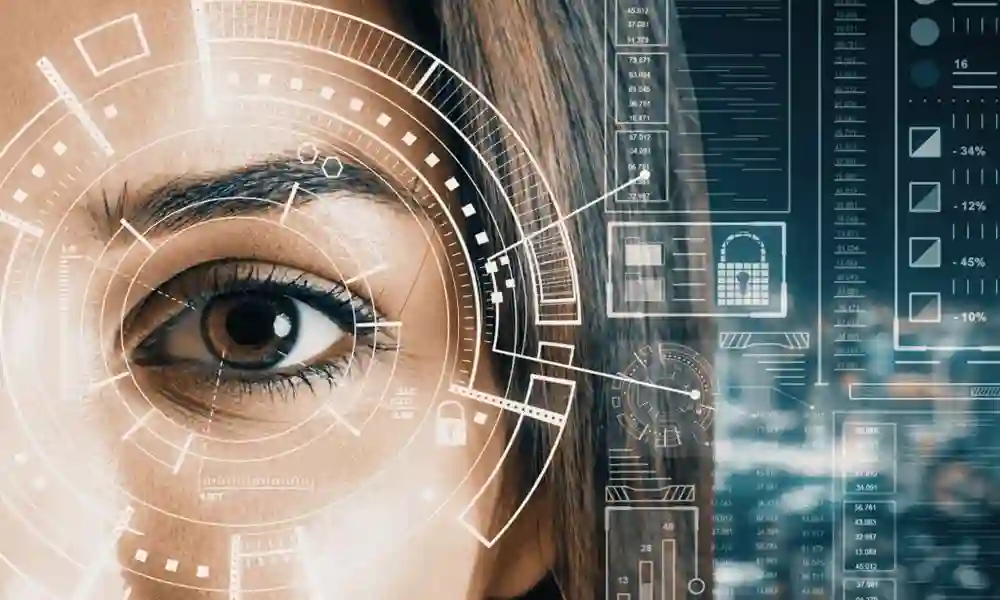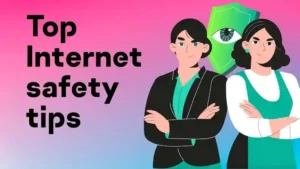Stay Safe Online and Offline: Essential Security Tips for 2025

Okay, let’s get one thing straight right out of the gate: Stay Safe Online and Offline in 2025. Yeah, I know, it’s an overused phrase, but seriously—this year, the stakes have never been higher. If you’re anything like me, the digital world can sometimes feel like a digital circus filled with hackers, scammers, and—honestly—a bunch of pop-up ads that will haunt your nightmares. But then there’s also the whole real-world security thing, which I’ll admit, I sometimes neglect. Spoiler alert: It doesn’t always end well. Here’s how to make sure you’re not the next one getting scammed online—or pickpocketed in real life.
Online Security: Your Digital Fortress
So you’re on the internet all the time, right? Same here. But let’s be real: it’s kind of like walking through a fancy shopping mall where everyone’s secretly trying to snatch your wallet. Here’s how I learned to Stay Safe Online and Offline in the digital age.
1. Mastering the Fine Art of Passwords
Now, look, I get it. Coming up with a strong password is about as fun as a root canal. But here’s the thing: using “password123” for your online banking? Big mistake. A few years ago, I thought using my dog’s name combined with my birthday would be “secure” (spoiler: it wasn’t). These days, I go full-on secret agent with passwords—think random letters, numbers, symbols, and the occasional emoji. And I’m not trying to brag, but I recently invested in a password manager. My life is changed.
2. Two-Factor Authentication (2FA): Your Invisible Bouncer
Ever wish you had a bouncer for your accounts? A little tough guy who doesn’t let anyone in without a secret code? Yeah, that’s basically what Two-Factor Authentication (2FA) is. Every time you log into Facebook, Gmail, or even that new fitness tracker app (the one you swear you’ll use, but never do), a second step pops up. It’s a little annoying at first, but it’s like adding a deadbolt to your front door. I’m telling you, I had a hacker try to break into my email once. Thank goodness for 2FA.
3. Phishing Scams: Don’t Fall for It
I’ll admit, I’ve fallen for a phishing scam before. That email from “Amazon” that claimed my account was compromised? Yeah, I clicked it. Don’t judge me. I was busy. But I learned the hard way. These days, I’m a bit more skeptical. I double-check the email address (because guess what? It wasn’t even from Amazon). If anything looks fishy—like, oh I don’t know, a link to a site that says “click here to claim your million-dollar prize”—I hit delete faster than you can say “phishing.”
4. Updates Are Your Best Friend (Even When They’re Annoying)
Remember when your phone or computer would bug you every other day with that “update available” notification? It was like the software was trying to annoy me into clicking it. Yeah, I used to hit “Remind me later” and pray it would go away. But over time, I learned the truth: those updates are security patches. They’re like tiny invisible shields keeping the hackers from getting in. So, now I update my software faster than I update my playlist. Trust me, it’s worth it.
5. VPNs: The Virtual Bodyguard
A while back, I was working in a coffee shop when I saw some guy walk in with a laptop and headphones, obviously trying to look like a serious hacker. Then I realized, he probably wasn’t hacking anyone—but I should’ve been worried about my own internet traffic. Public Wi-Fi can be a hacker’s playground. So, I started using a VPN. I’m no tech expert, but this thing encrypts my internet traffic so even if someone’s eavesdropping on the network, they can’t see what I’m doing. It’s like wearing a virtual invisibility cloak, and it’s saved my digital life more than once.
Offline Security: The Real-World Smarts You Need
Alright, so we’ve covered the internet. But here’s the kicker: while you’re worrying about passwords and phishing emails, your physical safety matters too. I’ve had my own share of clumsy mishaps (trust me, you don’t want to know about the time I lost my phone in a restaurant—long story, but it involved a waitress and a very awkward exchange). But anyway, I figured out a few things that really help.
1. Lock It Down, Literally
I know, I know—locking the doors seems obvious. But I swear, my friend Jenny once left her front door unlocked for a solid week because she “just didn’t feel like getting up to lock it.” That week, her car got broken into. Lesson learned. These days, I triple-check that everything’s locked when I leave, and I even keep a set of spare keys hidden (because, yeah, I lock myself out at least once a month).
2. Don’t Let Strangers Play You Like a Violin
My neighbor is a bit of a people person—sometimes too much of one. She’ll talk to anyone. I mean anyone. And once, a random person came knocking, claiming to be from the “water department.” He asked her to let him in and check the pipes. Well, thankfully, she remembered that I once warned her about social engineering scams (I’m that kind of friend). Long story short, she didn’t let him in—and the next day, the cops caught the guy running the same scam. So, moral of the story? Trust but verify. Always.
3. Don’t Let Your Tech Be a Target
I learned this lesson after my phone got swiped in a crowded train station—yeah, I was too busy watching a cat video to notice. Now, I don’t go anywhere without locking my phone and enabling the “find my phone” feature. If you haven’t set that up yet, what are you doing? Seriously. If your device gets stolen, being able to track it could make the difference between getting it back or watching your personal data drift away like a leaf in the wind.
4. Home Sweet (Secure) Home
It’s easy to get lazy about home security. But after my house was broken into (thankfully, nothing valuable was taken), I got a smart security system. Now I can check on my place from anywhere—and I sleep a whole lot better at night. If you’re not into high-tech security, at least get a decent lock and keep your valuables in a safe spot. The fewer people know where your stuff is, the better.
5. Be Aware of Your Surroundings
I don’t know if you’ve noticed, but the world’s getting more “eyes on you” every day. Everywhere you go, there’s a camera. It’s kind of unnerving, right? But here’s the thing: you gotta be aware of who’s watching you. It’s like my grandma always said: “If you’re going to talk to someone you don’t know, make sure they’re not wearing sunglasses indoors.” Anyway, just be aware of your surroundings, especially in public places. Trust your gut if something feels off.
Final Thoughts
All in all, I can’t stress this enough: Stay Safe Online and Offline. Protecting your personal data and your physical well-being is a full-time job. It’s not about living in fear; it’s about being smart and taking a few extra steps to ensure you’re safe. So, make sure your passwords are locked down, your door is shut, and your head’s on a swivel. Trust me, the more you do now, the fewer problems you’ll have later. Plus, you’ll sleep better, and that’s the real win.







